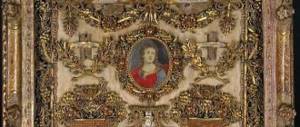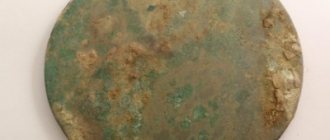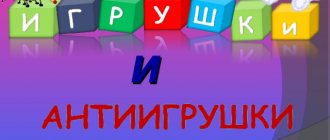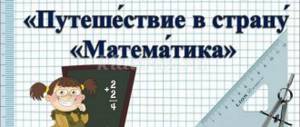Presentation “Maslenitsa. History of the holiday"
#4th grade #Teaching and methodological materials #Presentation #Additional education teacher #Art #Additional education
Maslenitsa History of the holiday
Maslenitsa is one of the most joyful holidays. All week long people spend a merry farewell to winter. These farewells are accompanied by folk festivities; pancakes are an integral element of these festivities. There are many versions to explain where the Maslenitsa holiday came from.
Where did the holiday come from? One of these legends says that in ancient times a little girl was born in the North, whose father was Frost. They gave her the name Maslenitsa. The girl was small, fragile and smiling. One day a group of people were caught in a snowstorm. Hiding from her, they met Maslenitsa and asked for help and warm them. Maslenitsa came, but surprised everyone. Because she was not a little girl, but a healthy woman with big rosy cheeks. She made a person forget about winter, cheered him up and made him dance until he was tired. Since then, the week before Lent is called Maslenitsa. Where did the holiday come from?
According to another version, the name of the holiday “Maslenitsa” is based on the tradition of baking pancakes. People tried to attract the mercy of the sun so that it would warm them and help them in difficult times. That's why the pancakes are shaped like a little sun. It was also customary in the villages to conduct round dances and organize festivities. It was believed that such ceremonies make the sun kinder, that is, the sun is “anointed.” Hence the name - “Maslenitsa”.
Other names for Maslenitsa Maslenitsa has other names. For example, “Meat Empty”, or Cheese, Cheese Empty Week. These names appeared due to the fact that, according to Orthodox custom, meat was excluded from food, and dairy products were still consumed. Other names for Maslenitsa: “killer whale”, “sugar mouth”, “kisser”, “honest Maslenitsa”, “cheerful”, “quail”, “overeat”, “yasochka”.
Maslenitsa has its roots in pagan times. In those distant times, this holiday was associated with the spring solstice. But with the adoption of Christianity, Maslenitsa began to depend on the timing of the beginning of Lent. For many centuries, Maslenitsa continued to be celebrated. This holiday is one of the most beloved among the people. Even the strict decrees and measures that were taken to ensure that the holiday was forgotten were not crowned with success. Previously, during the celebration of Maslenitsa, ice slides were erected in city squares, tea, sweets, and pancakes were sold, people in costumes were having fun, and horse riding was organized.
At all times, the main treat at Maslenitsa is pancakes. They were baked and eaten in large quantities. There is a certain ritual for every day of Maslenaya Week.
Maslenitsa meeting Oh, yes, Maslenitsa is moving into the yard! The wide one is moving into the yard! Oh, yes, Maslenitsa, Wide, stay for a week, a week! On the first day (Monday) there was a slide ride, and they didn’t forget about the swings. It was believed that the longer you roll down the icy mountain, the higher the ears of corn in the field will be. Therefore, they tried to make the slides very high and rode them until exhaustion. Well, they sang, of course. In the evening, the mother-in-law was expected to visit the young family. The older woman had to teach the young woman how to make pancakes, and to brighten up this obligatory culinary master class, she brought with her both flour and butter.
“Flirting” On Tuesday - “Flirting” - young girls and boys were looking for a mate. They held long celebrations and went to the huts to treat themselves. A single guy or girl who refused a bride or groom could easily have a bast shoe or, for example, a rotten stick hung on his back. There were special teasers for those who were in no hurry to get married and still lived with their father and mother.
“Gourmet” On this day, the sons-in-law came to their mother-in-law for pancakes. Reasonable people did not refuse such visits, which is why they were scheduled for Wednesday, because the mother-in-law had not left the stove since Monday for the sake of her son-in-law. The custom was strictly observed even in those families where there were several daughters and it was, in general, expensive to feed a whole horde of sons-in-law. After all, they did not come alone, but with their wives, and for a married woman, visiting her home was always a whole story.
“Wide Walk” The fourth day is called “Wide Thursday” or “Wide Walk”. On this day, songs are sung, rituals are performed, fist fights are held, sleigh rides, and caroling are performed.
“Mother-in-law’s evening” “Mother-in-law’s evening” was scheduled for Friday evening. So that the sons-in-law could rehabilitate themselves in the eyes of their mother-in-law, they were supposed to not only prepare a treat for her, but also welcome her in their home. Especially respected mothers-in-law were invited to visit with all their relatives, preferably with young girls - if there were still single guys in the family on the husband’s side. Under the gaze of their relatives, the young people danced in circles.
“Sister-in-law's gatherings” The sixth day (Saturday) is called sister-in-law's gatherings: on this day the young bride invited her relatives to her place.
Forgiveness Sunday And on the last day (Sunday), called Forgiveness Day, a straw doll was burned, and its ashes were scattered across the field so that the future harvest would be rich. On this day it is customary to forgive all insults and insults.
Maslenitsa in the works of Russian artists The people loved and love Maslenitsa. The nation's love for this holiday is reflected in the works of Russian artists. "Taking the Snow Town." V. Surikov. "Maslenitsa". B. Kustodiev.
Maslenitsa in the works of Russian composers This holiday is reflected in the works of not only artists, but also Russian composers. In the opera “The Snow Maiden” by N.A. Rimsky-Korsakov there is an episode that is dedicated to Maslenitsa.
Maslenitsa ritual in cartoons
FUCK YOU, MASLENITSA! A good Soviet hand-drawn cartoon based on the fairy tale by O. Tumanyan about a poor man who punishes a rich man for greed on Maslenitsa.
WINGED, HAIRY AND BUTTER At the edge of the forest, in a warm hut, there lived three brothers: a winged sparrow, a shaggy mouse and a buttery pancake...
Smeshariki: Maslenitsa In this series, Smeshariki talks about the basic rules of Maslenitsa, about the tradition of baking pancakes and burning an effigy.
EPISODE ABOUT MASLENITSA FROM M/S “PRINCE VLADIMIR” Here traditional festivities in honor of Maslenitsa in Rus' are shown: treats in the square, performances by buffoons, dancing and burning of a straw effigy.
Farewell, farewell, our Maslenitsa. Farewell, farewell, our Maslenitsa. We saw off Maslena, We sighed heavily for her. Sorry, Shrovetide, goodbye, And come next year, quickly! Hurry up!
Presentation “Maslenitsa” presentation for the lesson (senior group) on the topic
Slide 1
Shachkova Yulia Alekseevna, teacher of GBDOU No. 57 of St. Petersburg
Slide 2
Maslenitsa is a farewell to winter and a welcome to spring.
Slide 3
On Maslenitsa they say goodbye to winter and welcome the spring sun. Maslenitsa has always been noisy, fun with songs and games
Slide 4
So that everything goes well next year, sing chant songs: Come out, people, Stand at the gate to call for Spring, and see off Winter. Spring, spring is red, come, spring, with joy!
Slide 5
All week on Maslenitsa we had fun, rode downhill, and danced in circles
Slide 6
Like during Shrovetide, pancakes were flying out of the chimney. Oh, my pancakes, buttery pancakes, oh, pancakes, pancakes, pancakes, ruddy!
Slide 7
A rosy pancake meant the spring sun. And nowadays pancakes are baked on Maslenitsa. This is an old Russian custom to welcome spring.
Slide 8
Every day of Maslenitsa has its own name and rituals.
Slide 9
MEETING
Slide 10
Morning... MONDAY... The “MEETING” is coming. Bright sleds slide down the hills. All day fun. Evening comes... Having skated to their heart's content, they eat all the pancakes. On the first day of Maslenitsa, the Russian people celebrated the meeting of Pure Maslenitsa - a wide noblewoman. In the old days, children went out into the street in the morning to build snow mountains.
Slide 11
By the first day of Maslenitsa, mountains, hanging swings, booths for buffoons, and tables with sweets were set up. Not to ride down the mountains and on the swings, not to make fun of the buffoons meant in the old days - to live in bitter misfortune.
Slide 12
GAMES On the second day of Maslenitsa, various games were organized. People went sledding, skating, and ice-skating. They covered their faces with funny masks and believed that in a different guise a different life would begin - joyful and prosperous.
Slide 13
GOURMARK On this day people feasted on pancakes. Pancakes were baked from different flours and with different fillings: wheat, oatmeal, buckwheat, unleavened and sour dough. Here WEDNESDAY comes up - it’s called “Gourmet”. Every housewife casts a spell at the stove. Kulebyaki, cheesecakes - they succeed in everything. Pies and pancakes - everything is on the table! People joked and told various tales.
Slide 14
WIDE THURSDAY And on THURSDAY - the free “RAZGULAY” comes. Ice fortresses, snow fights... Troikas with bells enter the fields. On this day they carried a stuffed animal of winter and held competitions in strength and dexterity.
Slide 15
Mother-in-law's PARTIES Maslenitsa is also a family holiday. Spring has always been associated with the beginning of a new life.
Slide 16
SISTER-IN-LAW'S GATHERINGS This day was always noisy, with mummers, games, and favorite Russian pastimes: sledding down the mountains, horseback riding.
Slide 17
FORGIVEN SUNDAY The last day of Maslenitsa is the most important day of the entire Maslenitsa week. Everyone, young and old, asks each other for forgiveness in order to meet spring with a clear conscience. The last day of Maslenitsa was the noisiest and most fun. Competitions were held
Slide 18
They gave martenichkas, dolls of a boy and a girl, made of white and red threads, a symbol of friendship. They waved them and said: Forgive me, forgive me. Let go of all grudges.
Slide 19
In the evening they made a big bonfire and burned Maslenitsa. The fast began. There were always a lot of people gathered around the Maslenitsa bonfire, it was fun, and many songs were sung. They said goodbye to Maslenitsa both jokingly and seriously. Throwing straw into the fire.
Slide 20
Thank you for your attention!






